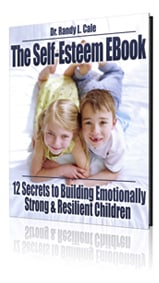See Full Video of Seven Mistakes Here
Video Transcription:
I catch him when he’s just about to hit the water and one more time I say John you’ve got to listen to me you could get hurt eventually the path is going to get much more treacherous. You know I want john to understand each year goes by that path gets a little more challenging at 18 the path looks very different than it looks at eight so I want John to get this so I give him my lecture again how many days how many times could I catch John before he’s going to get it how many times could I do this a million.
Why? Because I think I’m the teacher here right I think this is going to teach John something who’s the real teacher in this situation John’s going to learn but what’s going to teach John right the experience of hitting that ground is what John needs that’s the good news he is when John is learning he’s only about this far from the ground right so he learns all those critical lessons when he can fall and he goes and that’s it he’s over it.
I’m thinking I’m protecting John I’m thinking that somehow this is going to prepare him for what he needs for life and in reality, what I’m doing is I’m disabling John I am teaching him about a false reality unless by the way, you guys have somebody who comes around every day and catches you every time you make a mistake you know you didn’t pay attention to that checkbook and somebody says oh here’s a few extra bucks to cover that check or you know you get ready to bump into somebody’s car because you’re not paying attention and somebody comes along like I don’t know this is not reality right so the goal here is to see that most of your actions that have to do with protecting John from the age-appropriate developmental challenges of his time.
Most of those actions are going to disable John because it gets in the way of reality is what John needs John needs to understand that there’s a relationship between paying attention and the consequences that come with not paying attention does that make sense. If I mean here’s a common story I’ll get it’s uh 7:15 in the morning, John’s sitting around the table he says oh mom I forgot about that that that science project that I got to get finished up, I only need a few more minutes but I need your help. So mom pauses she gets on the cell phone she lets them know they’re going to be late for work she clears the table in a mad rush outcomes the science project suddenly in a wild rush in the next half hour 45 minutes things get pulled together she drives John to school writes an excuse for John. John gets an A on a science project.
Helping John or hindering John now this could play out dozens and dozens of times in dozens of different ways right if we think that John’s gonna get it by protecting John from those consequences of his choices then we’re mistaken and some of you have 10 years old, some of you have 12 years old, some of you have 16-year-old where you can see that unfolding right where you look back and you go oh yep yep yep protect it and see it wouldn’t be a problem with that if you were getting in the way if you weren’t let’s change that there wouldn’t be a problem if you weren’t trying to bend the laws of reality because the laws of reality are really what you want to prepare your kids for right you want them to be prepared for the way it works out there not for some false illusion of the way it works does that make sense.
If if I think that there are no consequences for my choices then I’m going to end up moving into the world in a way that becomes very dangerous it just doesn’t serve me very well. I can think of situations you guys can remember locally here some of the decisions that have been made at times with particularly in the world of athletics.
Sometimes you’ll see that there’ll be a team that’s it’s a state quality championship team and the team members go out and they do something utterly stupid maybe they break the law, maybe they do something that really should mean that they don’t participate in the team but because they’re getting ready to play in the championship what happens it’s okay like what are kids learning there. What are we teaching in those situations? To me, it’s probably one of the most dangerous things that we can do is if we think that somehow protecting kids from the consequences of their choices that we’re going to help them because we don’t keep in mind however I just want to remind you that as John is walking along this path or as we were walking with him that I’m not talking about stupid decisions.
If John is getting ready to run in the street, of course, she stopped John from running in the street right we’re talking about the 99.9 percent of John’s decisions were choice and consequence and he needs to learn that critical relationship so protection is not preparation. It disables kids because you see it over and over and over and over it is so tough to learn something later in life that you didn’t get by experience see it’s kind of like this when kids are young, choice and consequences are right close together right as we get older choice and consequence gets further and further spread apart.
We can understand that but the learning that makes it so that it’s in our system is all that comes when kids are early in life when kids are young in life and so key piece here is to make sure that your kids make choices and that those choices come with consequences and don’t get in the way of that if that means a little sadness if it means a few tears if it means a little upset if it means they’re angry at you because you didn’t bring them their soccer shoes after you’ve done that two dozen times and they don’t get to play in the soccer game that needs to be the teaching lesson.
I mean just watch what happens, if you always bring the soccer shoes will they ever remember to bring the soccer shoes if you don’t bring the soccer shoes how many times will it take before they remember the soccer shoes two-three times right she’s been there three times it took so protection is not preparation. Preparation is thinking about reality what will reality do and I’ll tell you one of the best rules of thumb you can keep in mind.
Long after we’re done here, you know over the years is you just want to think ahead, jump ahead to reality, jump ahead when you’re not going to be there and think about what to do and based upon that criteria and you’ll almost always be on track you’ll be on track so much of what guides my thought process in terms of what to do with kids is treating them as if they’re competent and capable of handling reality which by the way they are right. So reality rules just remember that that’s the key piece here.
Just stay focused and make sure that reality comes with consequences third mistake that we make is probably best exemplified by a young man I interviewed a year ago in August. We’ll call him Austin and Austin came to my office in the middle of August for an evaluation and his parents brought him in because he had been in an accident a couple of years before and was now 12 years old he was in middle school he was flunking every single previous year had every single subject was falling asleep on his desk and the parents were involved in a lawsuit and they believed they believed that their son had been injured and that his deterioration was due to this injury that had occurred several years ago.
We had a ton of medical records that I was looking through and so forth and the injury based upon the description and his symptoms afterward just did not appear to be that severe but I was involved in this evaluation. So Austin comes in and we have a nine o’clock appointment in the morning and his dad brings them in and so Interviewed the dad for just a few minutes about a half-hour before and dad seemed like a pretty normal guy. Austin comes in again 12 going on 13 9:30 in the morning sits down in my office we start chatting and you know as he’s sitting there he’s you can just see his head’s nodding and and and his eyes are going closed and he just looks like he’s falling asleep and I said Austin are you okay and he goes yeah yeah I’m tired.
I said what time did you go to bed he kind of looks at me and he goes 6:30. I said 6:30 this morning he goes yeah 6:30 this morning. I said what were you doing all night, I was playing video games with my buddies online. So how often do you do this every night I mean do you stay up, he goes well usually between five three as soon as the sun comes up we start to call it quits. So I said is this the way it is during the school year and Austin says no we usually stop by about 2:30. So needless to say Austin did not have a brain injury.
His father, however, I have questions about you know because when I asked his dad, I said you know what’s do you know what time your son went to bed last night and he goes no not really I know that he went down to his room now they put a room in the basement for their son 12 years old so he said I know he went down about 8 o’clock. That was the extent of what he knew about his son’s behavior throughout the evening. I said would you do you have any idea what time your son goes to bed when he’s in school, he goes no he usually goes down around 8 o’clock well he tells me he’s playing video games with his buddies until about two thirty-three in the morning, yes yeah you know I he’s talked about it before but all his friends do that you know all his buddies are up doing that. I said what do you mean all of his buddies you know 12 years old and he said well you know he tends to hang out with older kids you know they’re some of them are 16 17 18.
I said yeah in fact Austin said all of his buddies have dropped out of school and they’re at home playing video games till six in the morning and this is who dad is letting his son play video games with all night point being that as I talk to dad about this he’s he’s kind of looking at me like but all kids are doing this aren’t they and I’m going no not all kids are doing this but there are a lot of kids who are doing this there are a lot of kids who as a main diet eat McDonald’s french fries and chicken McNuggets as their main food right you guys may have seen the statistics came out a couple years ago but childhood obesity doubled in 15 years it’s an unheard of statistic is never before as anything like that happened in history childhood obesity doubled in 15 years now what that means for us what it means for you guys is that you know the health care what that’s going to do to your children’s future if in terms of how it affects them what their life is going to be like is is one thing but in terms of demands upon health care it’s another in terms of the quality of life it’s still another but that’s primarily a function of most of us being willing not most of us but a good percentage of us being willing to follow the crowd as a compass for staying on track the kids are all in the van after the soccer game where do they want to go they want to go to McDonald’s right.
I mean that’s where most of them want to go so you have to be careful about whether or not that really makes sense what’s the choice that makes sense here and so any of you remember a fellow by the name of Earl Nightingale, he was a he was a kind of a philosopher and and one of the first people to make motivational recordings matter of fact he had the first motivational record ever produced in 1933 and uh it was called I think the the name it was you you become what you think about most and but one of Earl Nightingale’s points was this he said basically he said if you look at what most people are doing and where most people end up he says you’ll see that most folks when they get later in life they’re really not that happy with their life they’re not that happy with their savings account they’re not that happy with their environment some are but most aren’t and so he had this thing he said if you want to figure out what to do in life look at what everybody else is doing and just go the opposite way you know you’ll be closer there’s no guarantee and he made that point there’s no guarantee but you’d be closer.
If you stayed away from all the places where most kids want to eat right you’d be closer to being on track if let’s take what most kids want to watch and again this may not be your children right because you may have taught them you may have modeled something different but what do most kids want to watch on TV.
What do most kids want to listen to if we take that as a group and we said okay we’re just going to go in the opposite direction? I think we’d all end up in a better place right so just keep this in mind you wouldn’t want to use me to be quite honest you wouldn’t want to use what everybody else is doing you kind of have to turn to your values what makes sense to you what is it that’s important to you what do if inside and this is the best way to determine if inside you’re looking at a choice for your child they want to do they want you to buy a toy they want you to buy a CD they want a video game and you look at that and your gut kind of goes all right pay attention to that’s your value speaking to you and if you pay attention to that then you’re going to be much closer.














